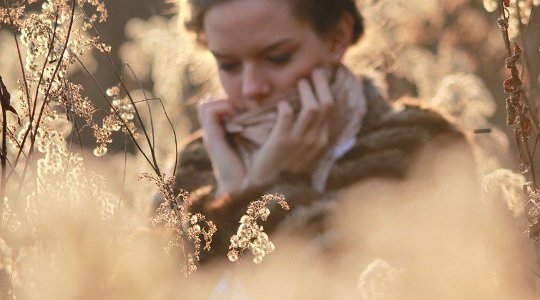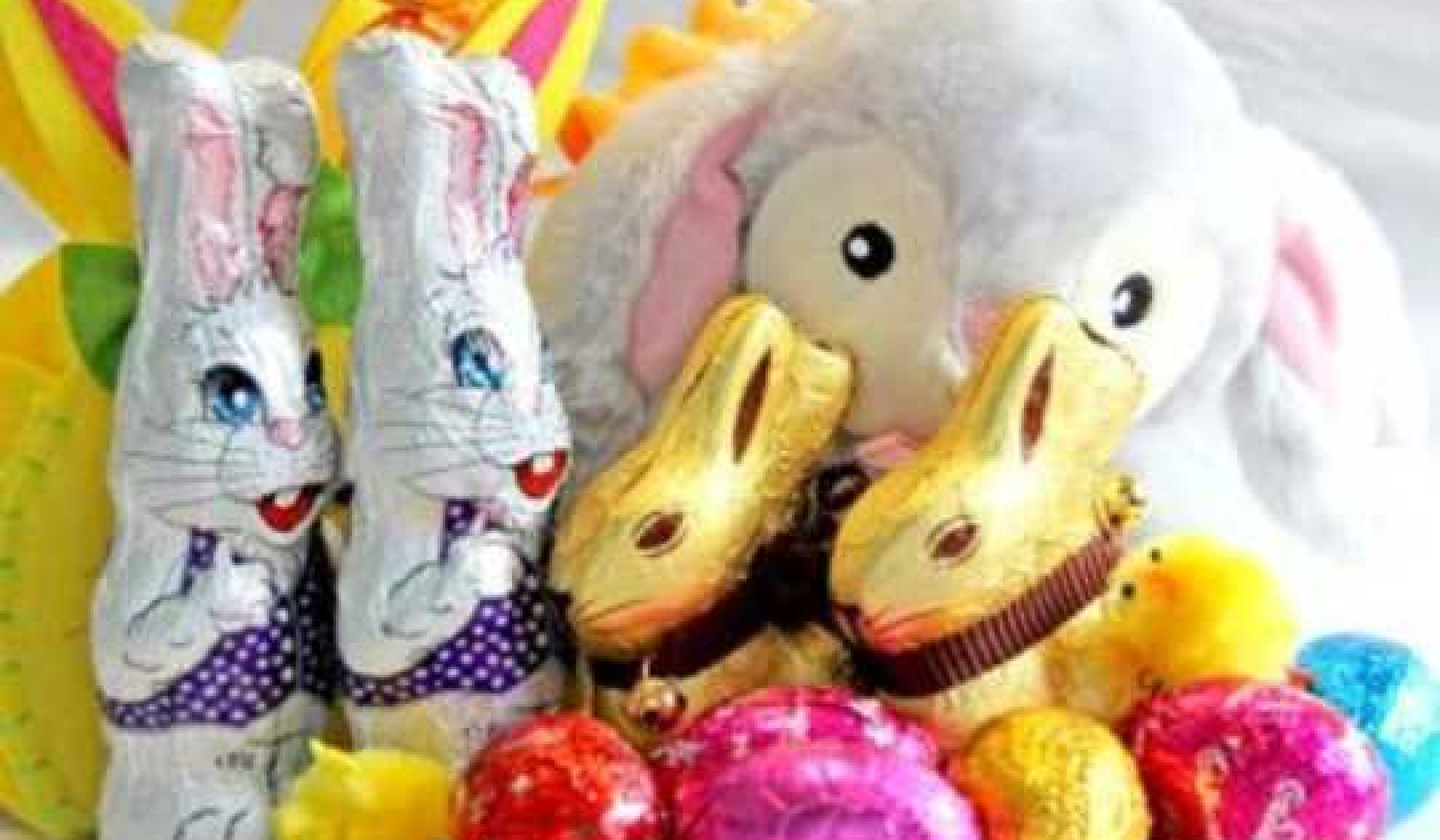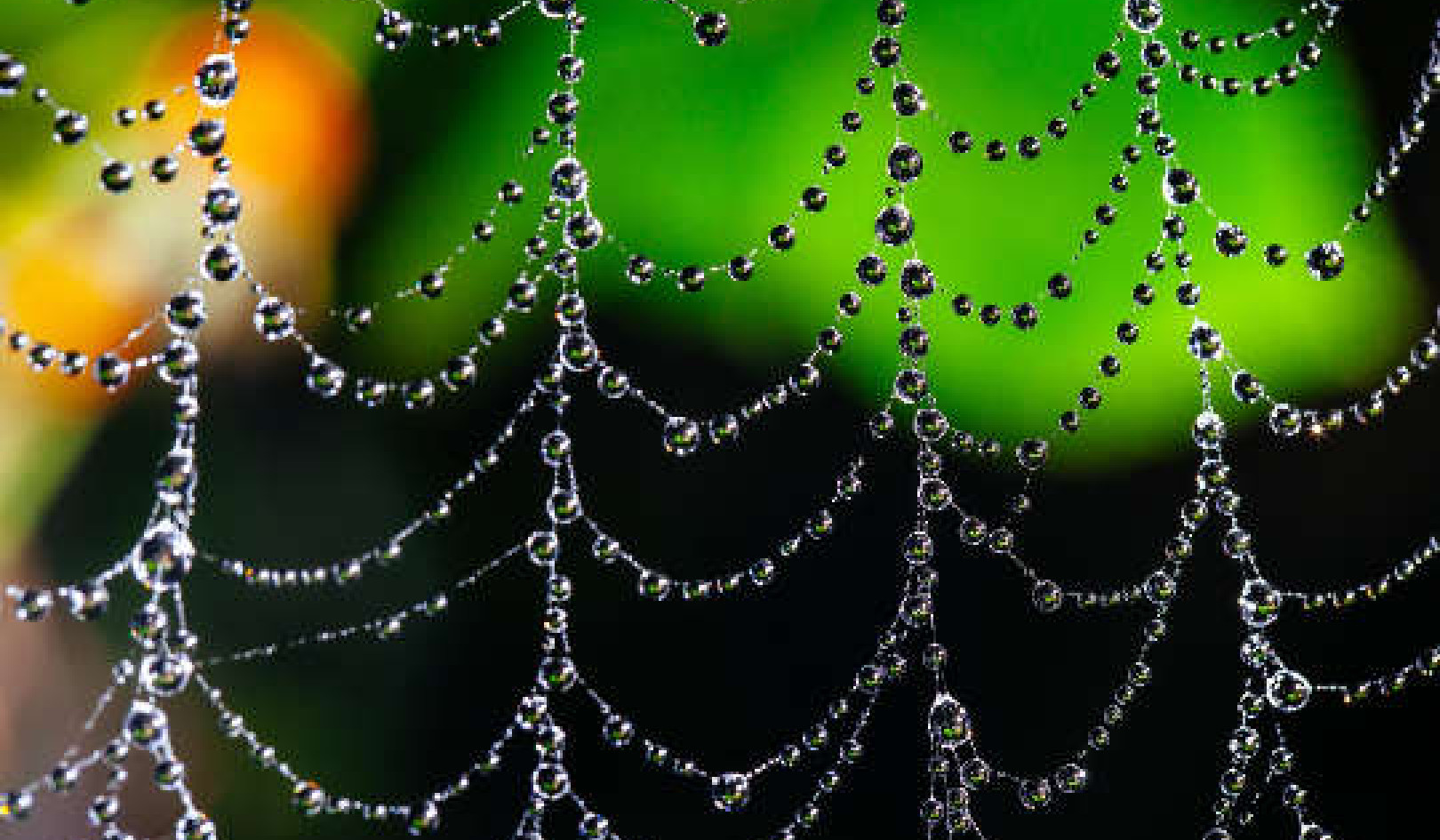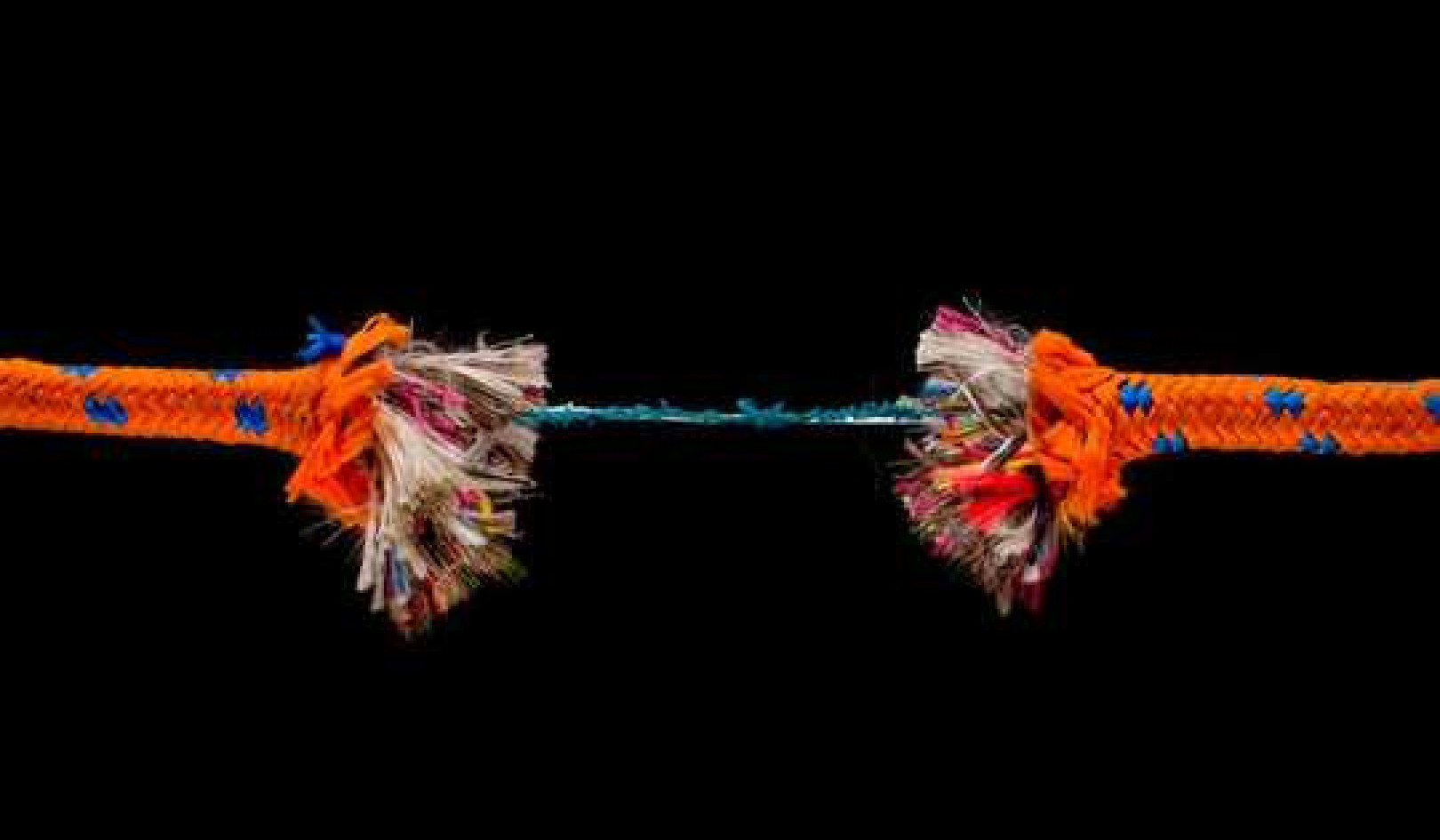
The phone rang. It was my mom. My grandmother Ida had stopped eating. I knew what this meant. My grandma was dying.
I was afraid. I was afraid of death. I was afraid to be with her when she died. I was afraid of all the grief I was going to feel. And I was afraid of everyone else's pain, too.
Being There For Her
I knew I could stay in California and let her die without me, but I couldn't do that. As frightened as I was, I wanted to hold her hand and be there for her.
The journey to Connecticut would have been faster if I had taken the wells Fargo pony wagon. At ten-thirty that night I took a taxi to the bus, then the bus to a plane, and the plane to other plane. Around noon the next day, I arrived in slushy, snowy, bitter-cold Boston and caught another cab to a bus headed to Hartford. Around 3:30 P.M., my father intercepted me at the Hartford bus station with the words, "Grandma is in bad shape. She might not make it through today."
We jumped in the car. "Floor it, Dad." It was an hour's trip to the nursing home and I wanted to get there as quickly as we could. I felt a sense of urgency. However, as we drove, I started to feel a different sensation. I felt we didn't have to hurry. I was still concerned and wanted to get there as quickly as possible, but I didn't feel frantic. I felt calm.
At 4:45 P.M., we arrived at the nursing home, and as my father pulled up to the entrance, I jumped out of the car and ran down the hallway to my grandma's unit. I burst into the room. My mom was there, a sweet smile on her face. My grandma Ida had died at 2:10 more than two hours earlier.
Do Not Drown in Your Grief
The previous year, I had interviewed Barbara Brennan, author of Hands of Light and Light Emerging. Barbara had told me if someone you love dies, try to stay open and not drown in your grief. The person who has died often has a great gift for you, and in order to receive it you must remain calm and open.
According to Barbara, if you were overwhelmed by grief, the gift couldn't be received and it was actually painful for the one who had died not to be able to give it. Barbara shared with me how she had received this gift, a beautiful flow of love, light, and wisdom, from her father when he passed over.
I was clear -- I wanted to stay open to receive my grandmother's gift. My grandma had not been moved. She was still lying on the bed. Her body looked at peace. I felt happy for her. She was free. Now she could be with her mother and all who had passed over whom she loved. I, too, felt at peace. I stayed in my adult-self and my heart filled with love.
Losing the Fear of Death
I recalled the woman in the group saying how much she missed being able to touch her grandmother. I leaned over and gently kissed my grandma's forehead. I was not afraid. I felt such a sweet love inside me. I reached through the covers and held her hand. I stroked her hair and her baby-soft skin until the memory was locked in my being.
Looking at my grandma's body, I realized I was looking at a shell. My grandma used to be in it. And now she was not there. The essence of my grandma was somewhere else, not in that shell.
In that moment, I lost my lifelong fear of death. All the years of fear -- both of her dying and of anything related to death -- melted away. I used to think when someone died, he was frozen in his body, like a movie actor pretending to be killed. That was not what I saw. My grandma simply was not in that shell any longer. She wasn't frozen in there. In fact, she wasn't in there at all!
I felt a profound sense of awe about the mystery of everything eternal. I remembered my grandmother's steady faith in God. And in this moment I also felt a deep faith in God and in the process of all living things.
My Grandma Was Giving Me Great Gifts
I talked to her. It was strange talking to her body. However I didn't know where else in the room to look. I figured if she was still in the room, which I assumed she was, she would understand I knew she wasn't in her body anymore. At the time it was a convenient place for me to focus my eyes. I told her I loved her forever and that she had done a great job at being the best grandma in the world.
The mortician was waiting in the hallway. He needed to take the body and had waited till the last minute so I could be there. When we reached home, my mom started to lose it. She kept saying, "I can't believe my mother is dead. I just can't believe it." And I replied, "That's because she isn't. I don't think she's dead, I think she's more alive than before." I could feel it. I knew it. I could feel her love so strongly. My grandma was free.
I stayed in my adult self, giving support, comforting, talking, listening, sharing. Then my dad and I headed to a store to pick up some groceries. In the car I was hoping we would continue talking about our feelings. Instead, my father plunged into a conversation about brands of ice-cream he liked or disliked and his favorite basketball team.
I knew my father loved my grandmother. I couldn't fathom how he was just going on and on about all this trivial stuff as though nothing had happened. Then I realized everyone handles grief differently. Okay, Dad, let's talk about Fudgesicles.
Sharing Love and Support
The next day at the funeral, my four-year-old nephew Sam asked me if I was old. I told him I was just a little older than his daddy. He said, "No, that's not what I mean. Are you old and sick and going to die?" I comforted him. "No, Sam, I'm not."
A few times before the funeral started, I lost it too. My sister-in-law, Roxane, took my hand and squeezed my arm with her other hand. The support felt solid.
As I was feeling another wave of sadness, I leaned into my father. He put his arm around me and said, "I love you, honey." It felt so good to feel his love and support, too.
One of the kids started to grab my hand and swing. The playful kid energy distracted me from the feeling of helpless grief. It put a smile on my face. I realized there were many ways to heal.
The funeral was loving and intimate: with my father conducting. Although not officially a rabbi, over the years my Dad who is a biblical scholar, has often conducted services for the Jewish community in my parent's hometown. He read the appropriate prayers, spoke about the mother-in-law whom he treasured, and then invited the intimate assembly of aunts, uncles, cousins, and grandchildren to share as well.
As each of us took a turn talking, my Aunt Shirley, in her Joan Rivers' style of delivery, said, "My mother always called me and Harriet her two diamonds. She didn't need any other jewels. We were her gems. And when the kids used to tease me in school and call me fat, she'd tell me it was because they were all jealous."
My grandmother had given lots of love to everyone in her family through food. Chicken soup with matzo balls, chopped liver, potato flakes, Hungarian stuffed cabbage -- no one could rival her expertise in the kitchen. She had been a phenomenal cook who had delighted in seeing the plump cheeks of someone well-fed.
We had a running joke in the family. If my grandmother told someone her face looked good, that meant by the rest of society's standards, she needed to go on a diet. I think she especially liked cooking for me because I was toothpick thin when I was young.
Although she had lived in poverty for many years, she had always invited poorer people to eat with the family. She was one of those people who had a special kind of heart.
Everyone laughed at my aunt's story. My grandmother was definitely a "Yiddishe Mama" and that was what would be put on her tombstone: "Ida Fourman, Beloved Wife, Yiddishe Mama."
The Gift Of Unconditional Love and The Gift Of Faith
I told about the many gifts I had received from my grandmother, including the gift of unconditional love and the gift of faith. I spoke about my experience of being with her after she died, and how I lost my fear of death because of it. And I spoke about how I looked forward to communicating with her through my dreams or in whatever way she comes to me.
I wanted so much to ease the pain of the people gathered. I wanted everyone to know it was okay to die, that it was safe, and there was no need to fear death. Then I realized all I could do was share my own experience. Each person would integrate their experience and do exactly what they needed to do for themselves.
A week later, my sister-in-law overheard my four-year-old nephew Sam talking to his friends at preschool. Sam told them, "They packed my great-grandma in a Chanukah box as a gift to HaShem (God)."
Every year for Chanukah, my parents mailed a big box of toys to Alabama for their grandkids. Sam must have seen the Jewish star on the coffin and deduced that the casket was a "Chanukah box." I loved the part about great-grandma being a "gift to God." Sam got it right.
What a way to view the loss of a loved one -- that they are being presented to God as a gift. It's one of the most brilliant and beautiful statements I've ever heard. The image of "packing great grandma" makes my heart smile and I'm sure my grandma has gotten a good laugh out of it too.
I thought about how I had worried about my grandmother dying for nearly thirty years. Back when she was in her early seventies, I remembered thinking she was getting old and I was terrified of losing her. I wondered who would be with me. Who would hold and comfort me when the dreaded event happened?
As the years went by, I thought about how each person I had been in relationship with would be the one to comfort me when she died. As each relationship ended, the hope of held and comforted by that particular partner ended as well.
The Gift of Not Worrying
My grandmother's death and how I reacted to it never played out as I had feared or expected. I hadn't needed anyone to hold me. Surprisingly, I was the comforter who could be there for my mom and others.
I could not have predicted this outcome. It was what it was, and it happened the way it happened. Once again, I remembered my grandmother's words -- "If I could give you one gift, it would be the gift not to worry. Things work out. Don't worry, mamaleh. It'll all work out."
I look forward to communicating with her. I picture her surrounded by love and I imagine God saying to her, "A job well done, Ida. You've done well." I picture her free, happy, and quite alive.
I learned there is no loss of love in the universe. The body may die, but never the soul. The essence of being, the spirit, goes on. And where there has once been love, there always will be love. Always.
Love goes on and on and on.
Steps to Happiness NOW!
- Crunch the clock.
- Once while intensely grieving a loss, I was on the phone talking with my mother. Crying hysterically, I told her. "I don't know how I'm going to get through the day." I'll never forget her response. "Just get through the next hour, and if you can't do that, then just get through the next minute."
- Notice beauty.
- Even when life feels unbearable, the birds still sing and the flowers still grow. Take every opportunity you can to notice the beauty surrounding you. It helps. Listen to the birds. Smell the beautiful scent of the flowers. Touch the smoothness of a stone.
- Focus on that which is eternal.
- During a recent loss, my friend Mark said to me, "Now is the time to get in touch with that which is Eternal. Feel the sun on your face. Be with the mountains, the ocean, the trees." Walk in nature. It helps us to connect with that which goes on and on beyond our mortal preconceptions.
- Be real.
- It gives others permission to do the same.
Another time while grieving, I started talking to a man sitting next to me on a plane. Tears falling, I spilled my guts to this total stranger and guess what? Because of the depth of sharing, we developed a very special friendship. That was two years ago. Recently he told me that because of my honesty and vulnerability, he has always felt safe to express whatever he's feeling, too.
Reprinted with permission of the publisher,
Red Wheel/Weiser, LLC. ©2002, 2014.
www.redwheelweiser.com
Article Source:
Crappy to Happy: Small Steps to Big Happiness NOW!
by Randy Peyser.
 Have you gone splat on the pavement of life? Crappy to Happy will show you how to transform from victim to victor – when your relationship has tanked, your income is flowing slower than an intravenous drip, or you’ve hit a flat tire on the road to your success. Happiness is possible! Crappy to Happy offers powerful, humorous, and inspiring stories of magical transformation, plus 152 steps to lead you to greater happiness NOW!
Have you gone splat on the pavement of life? Crappy to Happy will show you how to transform from victim to victor – when your relationship has tanked, your income is flowing slower than an intravenous drip, or you’ve hit a flat tire on the road to your success. Happiness is possible! Crappy to Happy offers powerful, humorous, and inspiring stories of magical transformation, plus 152 steps to lead you to greater happiness NOW!
Click here for more info and/or to order this book. Also available as a Kindle edition
About the Author
Randy Peyser is the former editor-in-chief of Catalyst, a national new age magazine. She has a one-woman show in San Francisco called Crappy to Happy, during which she finds herself arrested by the "Thought Police" for being a prisoner of her own thoughts, spins 'The Wheel of Faulting" and dances the "Chakra-Chanting-Cha-Cha." Visit Randy at https://www.randypeyser.com/




























